This post may contain affiliate links and Corporette® may earn commissions for purchases made through links in this post. As an Amazon Associate, I earn from qualifying purchases.
Sure, we all know what wardrobe essentials for work professional women are supposed to have in their closets, but if you’re buying one for the first time or replacing one you’ve worn into the ground, it can be a pain to find exactly the right incarnation in stores. In “The Hunt,” we search the stores for a basic item that every woman should have.
If you live in an area where it's snowy or slushy and you're going into the office (or prefer a classic style), what weatherproof boots are your favorites right now? Do you like a tall boot (more coverage)? A lug sole? A low bootie or calf-height bootie? Do tell…
I thought I'd do a little roundup of some of the best weatherproof boots I'm seeing from brands we've loved in the past…
This post contains affiliate links and Corporette® may earn commissions for purchases made through links in this post. For more details see here. Thank you so much for your support!
{related: how to do business casual in cold weather}
Longtime Favorites for Weatherproof Knee-High Boots for Work
If you're still comfortable with tall boots with skirts, dresses, and even jeans (which makes sense to me on one level, because they protect your leg by covering more), some of our long-standing favorites for weatherproof knee-high boots for work are still going strong in stores…
{related: what to wear to work when it's cold outside}
Great Weatherproof Booties for Work in 2022
I'm quite certain we featured this Jeffrey Campbell faux leather boot when it first came out (perhaps in a purple glitter?), and it's nice to see that in the intervening years, it's racked up a ton of great reviews. This shoe is $65, has almost 200 great reviews, and comes in matte black and shiny brown in sizes 5–11 (whole sizes only). I like — it's a bit more chic than the usual rainboot, but it's super affordable.
Oooh: Sperry has been mentioned by readers in the past, and they've got a ton of cute styles right now for under $100. Their Saltwater boot is the classic, but I'm liking this short bootie (do I want black? black with lavender? navy and orange? argh!). This almost combat boot also looks great.
{related: check out our Guide to Comfortable Heels!}
This waterproof ankle bootie from Blondo has been a bestseller for years — it has over 1,000 good ratings at Amazon. It's increasingly harder to find, though, so if this was your Holy Grail, then stock up. Amazon has it in 14 colors, regular and wide sizes, but it's mostly lucky sizes all around. Nordstrom has a ton of waterproof Blondo shoes with lug soles, if you're on the hunt.
These Sorels are so popular they're on their third iteration: presenting the Joan of Arctic Wedge III. This is the kind of shoe that I would break my ankle in, but they're incredibly popular, so darn my weak ankles. These $199 shoes come in 7+ colors, sizes 5–12, in regular and wide sizes. (Also popular from Sorel: these low Chelsea booties with cutouts.)
{related: how to dress professionally on the coldest days}
La Canadienne is ALWAYS #goals for waterproof boots. (I'd also put Aquatalia in this bucket!) The only problem is that they're often $500ish, which can be an investment, especially for a practical, non-fun, not particularly “status” purchase. So I'm delighted to tell you that Nordstrom Rack has a TON of La Canadienne (and Aquatalia!), many under $150 (!!!). These pictured ones look absolutely great to me — I love the partial lug sole, the teensy heel, the generally basic styling. I feel like these would be great commuting shoes for a ton of different work outfits. They're available in leather and suede for $217–$248, sizes 6–11.
Like this feature? Check out other recent installments!
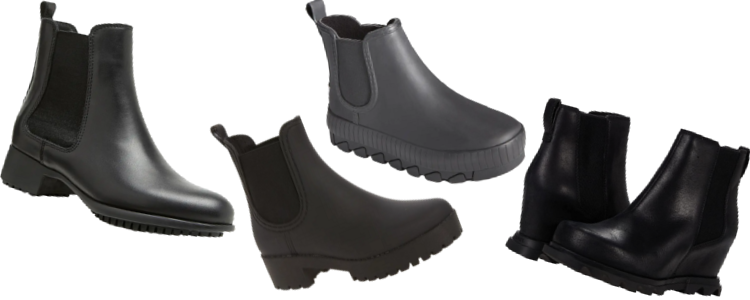
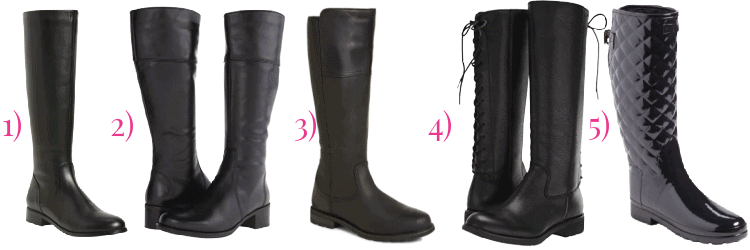
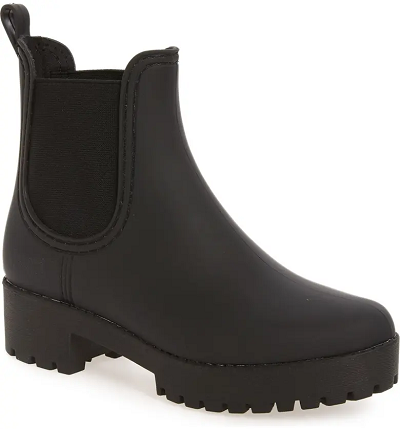
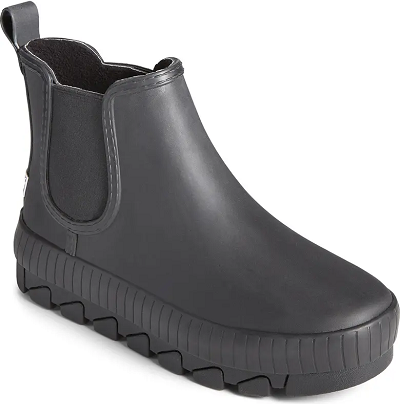
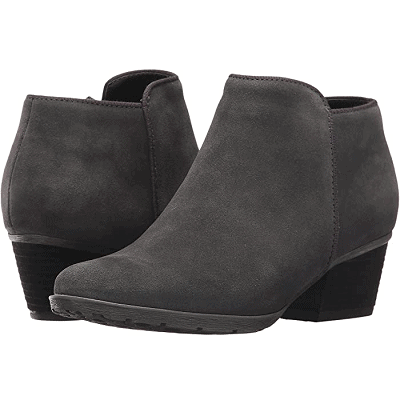
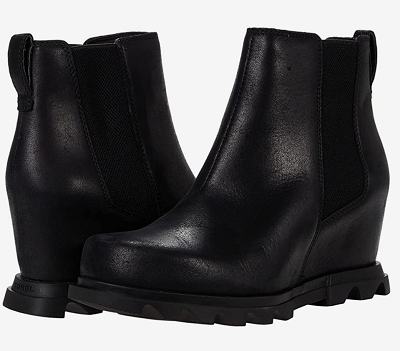
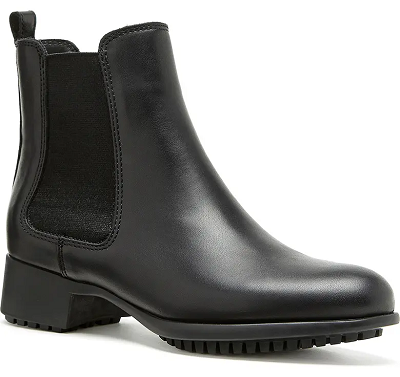

Anon
Anyone traveling recently and happen to know if there are any hotel chains out there that still require masks in indoor public spaces? I promised my 4 year old a birthday trip (it will be a roadtrip) but because she’s not vaccinated I don’t want to stay in a hotel unless masks are required in the lobby and elevators. I know there’s always Airbnb, but in general I really prefer hotels.
N
IDK if that’s a thing but you (and family) can certainly personally wear a mask and/or keep it moving through those areas (wait for an empty elevator if necessary or do ground floor or low floor for stairs). I’m doing apartment living with shared hallways/elevators/stairs & all has been well. But I don’t hang out in a lobby or anything, just pass through.
Anonymous
Are you traveling in the US? I think the Disney and Universal places require masks indoor even for the vaccinated.
But generally all chains seem to “comply with local rules”, and have exceptions for the vaccinated. Seems like the Hilton was one of the last to change to “local rules” and still at least require staff to masked.
Anonymous
yes to Disney. I think Universal is more lax.
Cat
I think this is more dependent on local regs than a national policy even if a chain purports to have one. Personally I would just KN95 it in public spaces regardless because who knows what guest compliance will be like.
Ses
I travelled in November/December and the Kimpton chain was good about asking for masks, and often their lobbies are large so the occasional unmasked person can be avoided.
Anon4this
I have a bit of an interesting work situation I am trying to navigate/curious what you would do. I work at an academic job full-time, making a good mid six figure salary doing something I love but its 40+ hours a week and keeps me very busy, and can be stressful at times. I enjoy it a lot though. Recently, I started a small part-time private practice doing psychotherapy, which I also like, but maybe not in the same way as my academic job (honestly, it’s so different in many ways its hard to compare). I spend ~10-12 hours a week on it, and found myself making the same salary as in my academic job. Recently, I have been very tempted to quit the academic job, work 20 hours a week (to essentially make the same income I am making now, but working 20 hour weeks instead of 50 hour weeks!). From a pure hours/financial perspective, it would make sense (in fact, a lot of people in my life who are familiar with my private practice are asking me why I won’t do this). My thing though is I love my academic job (despite of how stressed it makes me sometimes) and have worked very hard for it, and think there is a lot I would miss that I may not ever be able to get back (the intellectual stimulation, collaborations with academics, my research, my students, it’s a long list…) I am afraid that a psychotherapy practice alone will eventually over the years become boring/won’t be as intellectually stimulating. I do enjoy it a lot for 10 hours a week, I just don’t know if I would for 20 or would miss the academic job? BUT I could also do a lot of other things (exercise, read, spend time with my kids, travel, etc) with the time, and honestly with the childcare stress with covid, my husband working 50 hou+weeks, lack of time with young kids, etc the idea of having a lot more free time is very tempting. WWYD?? Anything I haven’t considered?
Senior Attorney
What about benefits/retirement? You need to look at the whole compensation package, not just the hourly rate. Just an an example, if you are in the U.S. you will be paying both halves of your Social Security, and that’s just for starters. I’d expect that you have excellent benefits in academia, and you’ll be paying all that out of pocket if you go out on your own.
Basically I’ll tell you the same thing I tell lawyers who ask about going into private practice: If you do that, you are consenting to be a business owner, with all that entails. If you are up for that, go ahead. Just realize that actually doing the psychotherapy hours is only going to be about half of it.
Senior Attorney
Reply in mod so check back. TL;DR: remember you will be a business owner so think it through carefully.
Anon
What about insurance? If you quit your academic job to start your own practice, how much are you going to have to pay for insurance (and, really, all the other costs of self-employment) and will you still be making the same salary? Not to mention, are you willing to take on all the administrative work that comes with running your own practice?
OP
I am on my husbands health insurance. I have already started my own practice (just doing it part-time), so the above is actual income, not revenue (i.e., taking out all costs related to running my own business) and takes into account admin work. I happen to be in a very niche area where my hourly rate is fairly high (and honestly, academics don’t make that much compared to private practice!)
OP
I am on my husbands health insurance (though to be fair I thought about how this is a risk if divorce/death happens). I have already started my own practice (just doing it part-time), so the above is actual income, not revenue (i.e., taking out all costs related to running my own business) and takes into account admin work. I happen to be in a very niche area where my hourly rate is fairly high (and honestly, academics don’t make that much compared to private practice!)
Monday
I’d add retirement to this exploration. Assuming you’re not already fully set for retirement, what would your income be after contributing X% (desired amount) to your own retirement fund? Do you have a match at your employer, and is that something you’d miss?
anonshmanon
In a lot of universities and institutions, there is flexibility about how a job is structured. Do you have any part-time colleagues? How about retired, but still fairly active colleagues? Going part time means you miss out on certain things and might not have as much political capital and growth potential in the department. But maybe there will be enough things that you like doing to make it worthwhile. If not at your institution, then maybe at a different one.
Anon
Have you considered scheduled time off (as is prevalent in academia) compared to the possible emergencies of psychotherapy? While you may intend to commit fewer hours overall, are you going to be dealing with people having meltdowns who need access to you ASAP, whatever the hour or holiday?
early retirement
I guess it just depends on how you value your time right now. Only you know the right answer.
Yes, you will probably get bored with psychotherapy alone after awhile. I think you realize this already…. If you enjoy academia, giving up all of that for private practice alone will be extremely isolating. You have to ask yourself, is the improved family time/personal time enough to make up for it? It might be. Maybe this is a different stage in life. You aren’t alone in considering this switch.
The real downside is that once you step out, it may be impossible to step back in. You may want to investigate that before quitting completely. Maybe you still “teach” once a month or attend a few weeks a year or whatever to maintain an academic ongoing appointment “on paper” that you probably will have to do for free. Just enough to leave the door open if you ever want to go back. Sometimes you can even swing a part time gig. Once your kids are grown, you may surprise yourself and want to go back.
I do have to say, it bums it out so much that folks often do what you are doing in your field, and this is why getting good quality and affordable therapy is unattainable for most of us. Yes, you can make a lot more $$ in private practice from all the rich patients. It just makes me sad that the people who often need you the most (and may be the most satisfying to help) will be left behind.
Good luck with your decision. Let us know how it goes. Don’t forget you will have to purchase your own insurance for medical malpractice. Price out that puppy…
Simone
Can you take a year of unpaid leave from your academic job to “try out” your 20 hour a week psychotherapy idea? I realize you are most concerned about long-term job satisfaction with the psychotherapy path, which won’t be answered with a one year trial. But, it could at least give you a taste of that alternate life. As a faculty member, I can take an unpaid leave at my college, but your mileage may vary in your role/your institution. But, it’s something to consider if taking an unpaid leave is available to you.
Anon
Thanks to everyone who weighed in on the coffee thread last week! I bought a few and did some taste testing. Whoever said I might actually like dark roasts was right! I’m enjoying Cafe Bustelo quite a bit.
As long as we’re talking coffee, how do you take yours, and what’s your afternoon pick-me-up of choice these days, caffeinated or not? I enjoyed a Nutella latte over the weekend, and one of my favorite local spots does a latte with cayenne and coconut that’s a fun change.
Anon
I mostly drink decaf tea (I can’t do coffee at all – I love the taste, but even decaf has enough caffeine to mess with my sleep) but during winter I like to do a mid-afternoon hot chocolate as a pick me up. Starbucks sells a boxed mix in grocery stores that is very good.
Anon
I used to do 2 cups a day, one when i get up in the morning and one around 930 or 10 am. I realized a couple years ago that the second cup was just making me anxoous and jittery so I cut it out. Afternoon pick ups are now just taling breaks away from screens and makimg sure Im hydrating with water.
That one cup in the morning is the best part of my morning routine. Drinking coffee in bed evey morming, even if its only 15 minutes before I have to get ready and out the door feels like an indulgent ritual.
I take my coffee black, no milk or sugar. Usually 4 (sometimes 6 if i need somthing closer to tar) table spoons of grounds per serving, a fairly standard sized mug. Always a dark roast from Caribou Coffee or a local roaster.
Ive been indulging recently in Chai Lattes or cappucinos from a neighborhood cafe on saturdays. Cayenne sounds so interesting!
pugsnbourbon
We have a local spot that does creative lattes – they recently had a miso caramel one that was very tasty.
My favorite afternoon pick-me-up is a dirty chai latte (chai latte + shot of espresso). I used to get them at my favorite college coffee place and there’s one spot in my current city that has them.
Worried
I have always been able to find la Canadienne boots on sale (though the cost was initially more than I paid for boots previously). I walk an average of 10 or more kilometers a day two – three times a week and these boots are warm (I have cold feet and not so great circulation) and they last upwards of five years (and can actually be firxed – the cobbler looves fixing my older lacanadiennes. They are actually comfortable and have a magical waterproofing, especially on the suede. I highly recommend them. Over the last 15 years, I have replaced all my boots with these (sale finds, and husband knows I love them so he has surprised me a few times… strict instructions to him to buy on sale haha). My advice – take the plunge and buy them – you can actually walk in them and they are so much comfier than blundstones and docs (for me at least:)
Go for it
I have them in waterproof suede and love~ 5 years, new heels 2x and going strong
boots
Completely agree.
Every few years I buy a pair of La Canadiennes at deep discount on sale, or a pair of Aquatalias. They are fantastic quality, last me many many years (my cobbler/I maintain them), and I have a fantastic assortment of boots/booties of all heels/heights/styles to choose from (of course, almost all black!) that are stylish enough for work. The clunky/trendy boot styles just aren’t for me.
Anon
hi please update your link. i went looking for non lug boots and only 2 came up but Google shopping showed me more and good sales. i ended up getting at rack and fell bad you didn’t get the referral but only 1 was left in my size. : / sorry